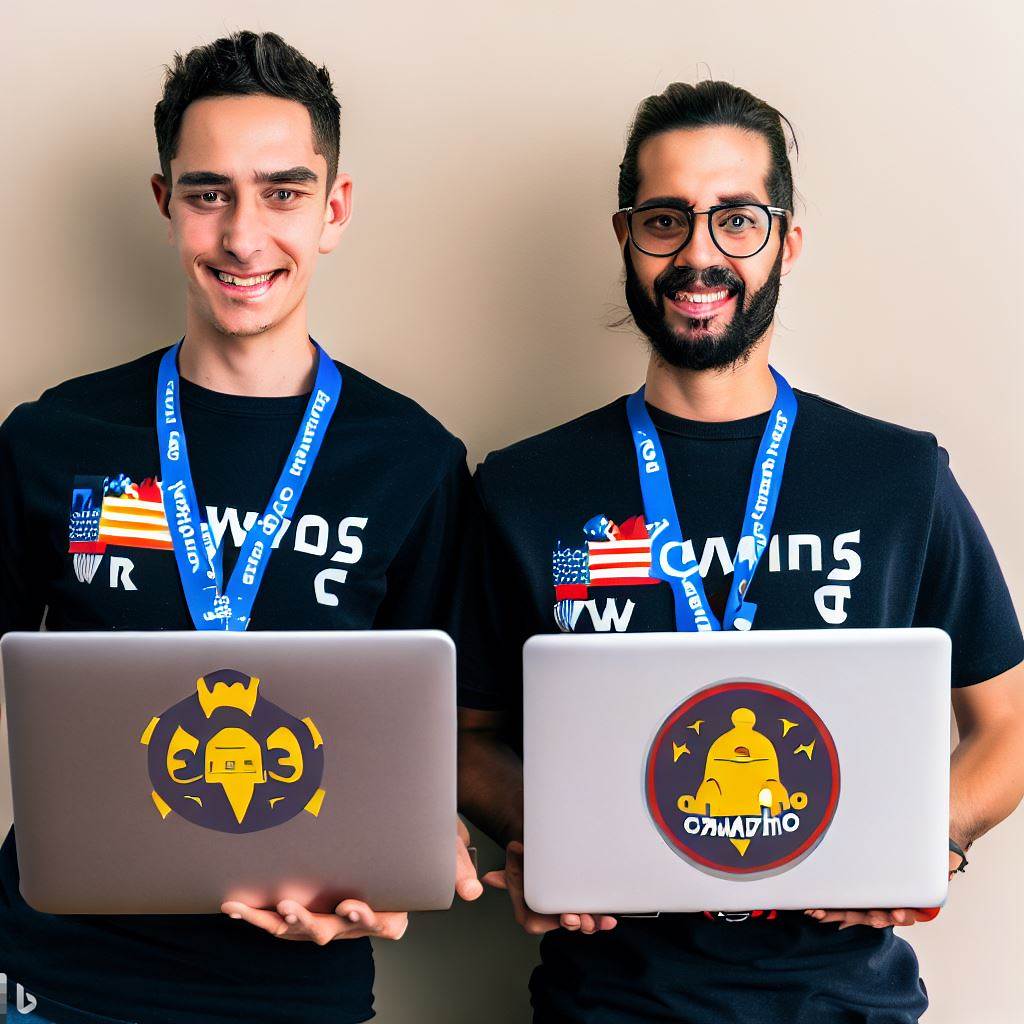The Importance of Teamwork in Software Development Projects
Enhancing Problem Solving Through Collaboration
Software development often involves complex problems.
These problems benefit from diverse perspectives.
Developers like Monica Chen and Raj Patel collaborate effectively.
They combine unique skills to accelerate problem solving.
This teamwork speeds up identifying bugs and designing solutions.
Moreover, discussing challenges openly reduces misunderstandings.
Open communication also prevents costly errors.
As a result, projects deliver higher quality outcomes on time.
Improving Code Quality and Consistency
Consistent coding practices matter significantly in teams.
Teams at RidgeLine Software establish clear coding standards.
This approach keeps the codebase maintainable and easier to review.
Additionally, peer reviews catch subtle mistakes early.
Consequently, the team produces more reliable and readable software.
Boosting Learning and Skill Development
Collaboration creates opportunities for continuous learning.
Junior developers receive feedback from experienced engineers like Carla Diaz.
Tech Consulting Tailored to Your Coding Journey
Get expert guidance in coding with a personalized consultation. Receive unique, actionable insights delivered in 1-3 business days.
Get StartedMeanwhile, senior engineers discover fresh ideas through mentoring.
This exchange fosters professional growth for everyone.
Clearly, a collaborative culture drives individual and team improvement.
Facilitating Efficient Project Management
Effective teamwork promotes transparency in workflows.
Project managers like Liam O’Connor coordinate tasks efficiently.
Regular stand-ups and updates keep teams aligned on goals.
Cross-functional collaboration reduces bottlenecks and speeds decisions.
Hence, projects achieve milestones smoothly and meet deadlines.
Building a Supportive Work Environment
Collaborative teams foster trust and camaraderie at work.
Developers like Nina Ahmed feel empowered to share ideas freely.
This supportive atmosphere increases motivation and reduces burnout.
In turn, team members stay engaged and committed to success.
Ultimately, collaboration strengthens both the product and its creators.
How collaboration accelerates problem-solving and debugging
Enhancing Idea Exchange
Collaboration fosters the exchange of diverse ideas among team members.
Build Your Vision, Perfectly Tailored
Get a custom-built website or application that matches your vision and needs. Stand out from the crowd with a solution designed just for you—professional, scalable, and seamless.
Get StartedProgrammers like Maya and Rahul benefit from multiple viewpoints.
Consequently, they identify potential issues faster than working alone.
Moreover, collaborative discussions often reveal solutions previously overlooked.
Sharing Expertise and Knowledge
Different developers bring unique skills and experiences to a project.
For example, Lucia excels at front-end issues, while Eric specializes in backend logic.
Collaboration allows them to address complex bugs more effectively.
Therefore, teams quickly isolate root causes and verify fixes efficiently.
Utilizing Collaborative Tools
Teams use tools like GitHub and Jira to track bugs collectively.
These platforms enhance transparency and streamline communication.
As a result, developers avoid duplicate work and integrate fixes seamlessly.
Encouraging Pair Programming
Pair programming accelerates debugging by involving two minds on one task.
Developers such as Serena and Ahmed catch errors early and improve code quality.
They continuously review each other’s work, reducing overlooked mistakes.
Thus, problem-solving cycles become shorter and more productive.
Optimize Your Profile, Get Noticed
Make your resume and LinkedIn stand out to employers with a profile that highlights your technical skills and project experience. Elevate your career with a polished and professional presence.
Get NoticedFostering a Supportive Environment
Collaborative teams encourage open communication about challenges.
For instance, developers feel comfortable seeking help from peers like Olivia.
This supportive culture decreases frustration and boosts morale.
Consequently, teams resolve issues faster and maintain high motivation.
The Role of Code Reviews in Enhancing Code Quality
Improving Code Reliability
Code reviews catch bugs before they reach production.
They ensure that software behaves as expected under various scenarios.
Moreover, reviews help identify edge cases that developers might overlook.
As a result, product stability increases significantly.
Teams like those at FinTech Innovate rely heavily on this process.
Enhancing Maintainability and Readability
Peer reviews promote writing clear and understandable code.
They encourage consistent coding styles across the team.
Developers gain insights into alternative approaches during reviews.
Consequently, future maintenance by other engineers becomes easier.
Companies such as Nova Systems mandate code reviews to uphold standards.
Facilitating Knowledge Sharing and Team Growth
Code reviews provide opportunities for junior developers to learn from seniors.
They foster collaboration by encouraging open discussions about solutions.
Feedback during reviews improves coding skills continuously.
Thus, teams at Blue Orbit Technologies improve collectively over time.
It builds a culture of knowledge exchange and innovation.
Best Practices for Effective Code Reviews
Focus reviews on specific functionality rather than all code at once.
Encourage constructive feedback that respects original authors.
Use tools like ReviewMaster or CodeFlow to streamline the process.
Set clear review guidelines to avoid confusion or conflict.
- Define scope and priorities for each review
- Keep review sessions short and focused
- Encourage asking clarifying questions
- Track recurring issues to improve standards
These practices help teams achieve the highest code quality.
Explore Further: The Importance of Reading Code to Improve Your Skills
Benefits of Diverse Perspectives and Skill Sets in Coding Teams
Enhancing Problem-Solving Abilities
Diverse teams bring unique viewpoints to software development challenges.
Therefore, they creatively approach complex coding problems.
Consequently, teams avoid tunnel vision and discover innovative solutions.
For example, an experienced front-end developer highlights user interface issues early.
Meanwhile, a back-end engineer focuses on data efficiency and security.
Thus, collaboration across specialties strengthens the overall problem-solving process.
Accelerating Learning and Skill Development
Team members share knowledge freely, fostering continuous learning opportunities.
In addition, developers gain exposure to unfamiliar technologies through collaboration.
Consequently, individuals rapidly expand their skill sets beyond their original expertise.
For instance, a data scientist may learn coding best practices from a software engineer.
Likewise, junior programmers benefit from mentorship by seasoned colleagues.
As a result, diverse teams cultivate growth for all members.
Increasing Code Quality and Maintainability
Collaborative teams conduct thorough code reviews from multiple perspectives.
Therefore, they identify bugs and vulnerabilities earlier in the development cycle.
Moreover, having varied skill sets improves documentation and testing standards.
For example, testers contribute insights about edge cases programmers might overlook.
Also, UX designers ensure accessibility and usability concerns are addressed.
Ultimately, collective review reduces technical debt and improves software quality.
Fostering Inclusive and Adaptive Work Cultures
Diverse coding teams reflect real-world user demographics and needs.
Thus, they create software with broader accessibility and relevance.
Furthermore, inclusive collaboration nurtures respect, empathy, and resilience.
For example, Elena Martinez’s team at Synex Solutions thrives on open communication and feedback.
Because of this, the group adapts quickly to changing project requirements.
Diverse perspectives build stronger, more agile coding organizations.
- Improved and innovative problem-solving capabilities
- Faster personal and professional growth for developers
- Higher code quality through multi-angle reviews
- Work cultures that promote inclusion and adaptability
Discover More: How Code Libraries Simplify Complex Projects
Tools and Platforms That Facilitate Effective Coding Collaboration
Version Control Systems
Version control systems track code changes efficiently.
They allow multiple developers to work on the same project smoothly.
Git stands out as the most popular version control tool today.
For example, companies like Vanguard Tech rely heavily on GitHub for their projects.
Additionally, GitLab offers an integrated platform combining version control and CI/CD.
As a result, developers experience faster integration and fewer conflicts.
Integrated Development Environments with Collaboration Features
Coding platforms such as Visual Studio Code now include real-time collaboration extensions.
Microsoft’s Live Share extension enables developers to edit and debug together live.
Moreover, JetBrains Space provides an all-in-one IDE, chat, and repository hosting solution.
Many teams appreciate these tools for improving code quality and speeding up problem-solving.
Project Management and Communication Tools
Effective collaboration requires seamless communication across teams.
Slack remains a top choice for developer conversations and instant feedback.
Platforms like Jira and Trello help track tasks and progress transparently.
Digital agency BrightWave uses Jira to align developers and designers closely.
Consequently, teams reduce misunderstandings and deliver projects on time.
Code Review and Continuous Integration Platforms
Peer code reviews catch errors early and promote shared knowledge.
Tools like Crucible and Phabricator streamline the review process.
GitHub Actions and CircleCI integrate testing to ensure code stability continuously.
A startup named ApexSoft credits these CI tools for faster deployment cycles.
Therefore, development teams maintain higher code quality consistently.
Find Out More: How Code Reviews Can Make You a Better Programmer: Best Practices
Collaboration as a Driver for Continuous Learning and Skill Improvement
Enhancing Knowledge Through Team Interaction
Collaboration encourages developers to share their knowledge freely.
For example, Crestwave Solutions regularly hosts coding workshops.
These sessions expose programmers to diverse techniques and best practices.
Moreover, junior engineers gain insights directly from experienced peers.
This open exchange accelerates individual skill enhancement effectively.
Fostering Problem-Solving and Innovation
Working together helps teams tackle complex coding challenges efficiently.
At NovaCore Technologies, pair programming improved debugging speed considerably.
Furthermore, collaborative environments inspire creative solutions.
Developers also learn new approaches by observing various coding styles.
Consequently, continuous learning becomes an integral part of daily work.
Receiving Constructive Feedback for Growth
Peer reviews create opportunities to receive valuable critiques.
For instance, Starlight Dynamics mandates code reviews for every project.
Constructive feedback highlights areas for improvement clearly and promptly.
Developers refine their skills by addressing pointed suggestions effectively.
Thus, collaboration ensures steady professional development and quality code.
Developing a Supportive Learning Culture
Companies like Vertex Innovations cultivate environments where learning thrives collaboratively.
Team members freely ask questions without fearing judgment.
Mentorship programs pair seasoned developers with newcomers thoughtfully.
This culture motivates continuous skill enhancement and confidence building.
Ultimately, collaboration becomes the foundation for lifelong learning in coding.
Discover More: Cracking the Code: How Small Daily Coding Challenges Can Sharpen Your Skills

The Impact of Open-Source Communities on Collaborative Coding
Fostering Innovation Through Shared Knowledge
Open-source communities drive rapid innovation by sharing knowledge freely.
Developers worldwide contribute diverse perspectives to improve software.
Consequently, this collective intelligence accelerates problem-solving processes.
For example, the Linux kernel benefited from global collaboration led by Linus Torvalds.
Furthermore, it inspires others to build upon existing tools creatively.
Building Skills and Professional Networks
Participating in open-source projects helps developers sharpen their coding skills.
Moreover, contributors often gain recognition from influential industry experts.
This exposure can lead to career opportunities at companies like Meridian Software.
Members engage in discussions, code reviews, and mentorship, expanding their networks.
Hence, open-source communities serve as informal coding bootcamps and professional hubs.
Driving Industry Standards and Interoperability
Open-source collaborations establish robust industry standards across technologies.
For instance, the Apache Software Foundation promotes widely adopted frameworks.
These standards ensure compatibility and reduce development redundancy.
As a result, companies like Solara Tech save time integrating multiple systems.
Therefore, open-source efforts foster a more connected coding ecosystem.
Encouraging Transparency and Trust
Open codebases enable transparent inspection, which increases software reliability.
Developers like Anika Rao actively audit projects to identify security vulnerabilities.
Additionally, this openness builds trust among users and contributors alike.
Consequently, organizations such as Petra Analytics choose open-source tools for critical tasks.
Ultimately, transparency enhances the overall quality of collaborative software projects.
Challenges in Collaboration
Communication Barriers
Effective communication remains a significant challenge among coding teams.
Different time zones cause delays in feedback and responses.
Moreover, language differences can create misunderstandings during discussions.
Remote work sometimes limits non-verbal cues, reducing clarity.
These barriers often hinder smooth project progression.
Diverse Skill Levels and Backgrounds
Team members often have varying levels of experience and expertise.
This diversity influences how tasks are understood and executed.
Beginners may struggle to keep pace with seasoned developers.
Consequently, unequal skill distribution might slow down collaboration.
Additionally, differences in coding styles can cause integration issues.
Tooling and Workflow Differences
Teams frequently use different tools and development environments.
Incompatibilities between tools create workflow disruptions.
Furthermore, inconsistent version control practices lead to merge conflicts.
These technical disparities challenge seamless cooperation.
Strategies to Overcome Collaboration Challenges
Enhancing Communication Practices
Teams should establish clear communication channels and guidelines.
Regular video meetings help bridge the gap in remote interactions.
Using collaborative platforms like Slack or Microsoft Teams keeps discussions organized.
Encouraging open and respectful dialogue improves mutual understanding.
Moreover, documenting decisions reduces confusion later on.
Fostering Inclusive Team Culture
Leaders must promote an environment where all members feel valued.
Pair programming pairs experienced developers with juniors effectively.
Code reviews encourage knowledge sharing and continuous learning.
Providing mentorship helps less experienced members develop skills quickly.
Also, recognizing contributions boosts team morale and engagement.
Standardizing Tools and Workflows
Agreeing upon a standard set of tools simplifies integration.
For instance, adopting Git consistently prevents version control issues.
Implementing continuous integration pipelines automates testing and deployment.
Clear documentation of workflows ensures everyone follows the same process.
Regular training on tools keeps the team updated with best practices.
The Influence of Communication Skills on Successful Coding Collaboration
Effective Communication Builds Stronger Teams
Clear communication creates a solid foundation for any coding collaboration.
Developers who express ideas precisely reduce misunderstandings significantly.
Additionally, open dialogue fosters trust among team members.
For example, at Stratatek Solutions, teams improved project timelines by prioritizing communication.
Consequently, collaboration became more efficient and productive.
Active Listening Enhances Problem Solving
Active listening allows developers to fully understand their peers’ viewpoints.
Furthermore, it encourages sharing diverse ideas openly.
When Lucas Zhang listens attentively in his team, discussions lead to better coding strategies.
Thus, the team resolves issues faster and with higher quality.
Clear Documentation Supports Transparent Collaboration
Writing clear documentation makes code accessible to all contributors.
Moreover, it prevents confusion during handoffs between developers.
At HelixTech, detailed README files helped remote teams stay aligned across time zones.
Therefore, transparent documentation strengthens ongoing collaboration efforts.
Using Collaboration Tools Efficiently
Modern tools enable teams to share code and communicate effortlessly.
Slack and Jira help keep everyone updated on changes and progress.
For instance, Evergreen Software uses these platforms to coordinate large developer groups.
As a result, communication flows smoothly and enhances team synergy.
Soft Skills Complement Technical Expertise
Communication is a crucial soft skill that complements coding abilities.
Sophia Martinez combines her technical knowledge with excellent communication in projects.
This combination ensures requirements are understood and implemented correctly.
Hence, teams meet client expectations with fewer revisions.
Strategies to Improve Communication in Coding Teams
Encourage regular daily stand-ups to discuss goals and blockers.
Promote code reviews as opportunities to share constructive feedback.
Also, foster a culture where questions are welcomed and answered respectfully.
By applying these strategies, teams like NovaSoft achieve seamless collaboration.
Case Studies Demonstrating Success through Collaborative Coding Efforts
Open Source Platform Development at GreenByte Solutions
GreenByte Solutions spearheaded the development of an open source platform.
The team used collaborative coding to accelerate the project timeline.
Developers shared tasks on GitHub, enhancing communication and transparency.
The platform launched months ahead of schedule.
Cross-functional collaboration improved code quality significantly.
The team incorporated feedback from contributors worldwide through pull requests.
This approach created a robust and scalable product that met diverse client needs.
Enhancing Data Security with Collaborative Efforts at NovaCyber
NovaCyber assembled a diverse team to enhance their data security system.
The project required expertise in encryption, algorithms, and system architecture.
Using pair programming, they caught vulnerabilities early in development.
Regular code reviews fostered collective ownership of security standards.
The culture of collaboration minimized bugs and improved system reliability.
NovaCyber reduced security breaches by 40% within six months.
This success showed how teamwork leads to superior cybersecurity solutions.
Global Collaboration in AI Model Training at SolaraTech
SolaraTech engaged developers and data scientists across three continents for AI training.
The collaborative approach allowed round-the-clock progress on complex datasets.
They synchronized efforts using cloud-based code repositories and communication tools.
Integrating diverse perspectives enhanced model accuracy and bias reduction.
The team held daily virtual standups to resolve issues quickly and share knowledge.
This continuous interaction accelerated development and boosted innovation.
The AI model achieved state-of-the-art performance in natural language tasks.
Collaborative Bug Fixing Initiative at QuantumSoft
QuantumSoft launched a company-wide bug fixing sprint to improve product stability.
The initiative encouraged all developers to collaborate on critical issue resolution.
Teams used issue trackers to assign and prioritize bugs efficiently.
Pairing junior and senior developers promoted knowledge transfer and skill growth.
Communication channels remained open for quick troubleshooting and support.
Collaboration reduced outstanding bugs by 75% within two weeks.
This success highlighted the power of teamwork in maintaining software quality.
Key Benefits Realized from Collaborative Coding
- Accelerated development cycles through paired and distributed work.
- Improved code quality using collective code reviews and diverse perspectives.
- Increased innovation by integrating varied skills and experiences.
- Enhanced problem solving with real-time feedback and knowledge sharing.
- Boosted team morale and ownership through inclusive collaboration.
Additional Resources
Padlet – Visual Collaboration for Creative Work and Education




